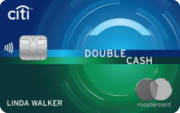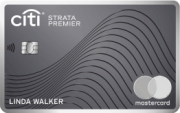The content on this page is accurate as of the posting date; however, some of the offers mentioned may have expired.

You don`t know your credit cards as well as you think. Credit cards have lots of loopholes that can catch you off guard. Like should you choose a frequent flier card or a basic rewards card? What time of the year is the best time to do a balance transfer? If I die overseas will my credit card pick up the bill? See, things you don`t think about, but very valid questions, nonetheless. You don`t have to have a slew of financial mishaps to see the negative effects on your credit report, even one or two bad decisions can send your credit score plummeting.
Here are some of the most common credit card mistakes that you can avoid:
- Getting a card just because of its rewards. While a slew of rewards and racking up points for your purchases can seem like a lot of fun, it can lead you down the road to debt. Many rewards card require you to spend a minimum amount of money in order to see the rewards, for some cards minimums can be $1,500 worth of purchases. Also, rewards differ from card to card, some cards offer one to five percent cash back depending on the time of the month, and others simply offer points per dollar spent. Rewards cards are also known for their notoriously high APRs, some over 20 percent. If you are signing up for a rewards card solely for the rewards you will receive, you may end up acquiring more debt in pursuit of rewards.
- Cashing in on those credit card checks.Those nifty little checks that your credit card sends you are actually the same as a cash advance. Cash advances usually carry expensive fees and high interest rates. Cash advances are always costly, so think about that before you cash one of those credit card checks.
- Reaching the limit too quickly. Don`t go on a shopping spree as soon as you get the credit card. Well, you can, as long as you don`t get close to your spending limit. At any given time, you should have two thirds of your spending limit available. If you keep a high balance on your credit card it can reflect poorly on your credit score, and you may be required to pay monthly installments that are higher than what you normally pay.
- Paying late.This is one of the biggest offenses to your credit card, but it is the one thing that is within your control. If you continue to pay your bills on time and if you pay slightly over the minimum balance your debt will be eliminated and your credit score will be affected positively. If you repeatedly miss payments or pay late, your credit card company may penalize you in other ways. For example, your low interest rate could skyrocket to almost double the amount. If you want to save money and protect your credit score, paying your bills on time is the best way to do it.
- Committing to many balancing acts.While balance transfers are helpful, they won`t erase your debt for you. You have to commit to paying off the debt within the introductory time period in order for a balance transfer to be worthwhile. If you fail to pay off your debt after your first balance transfer, continuing to do so can be bad for your credit score and your debt.





